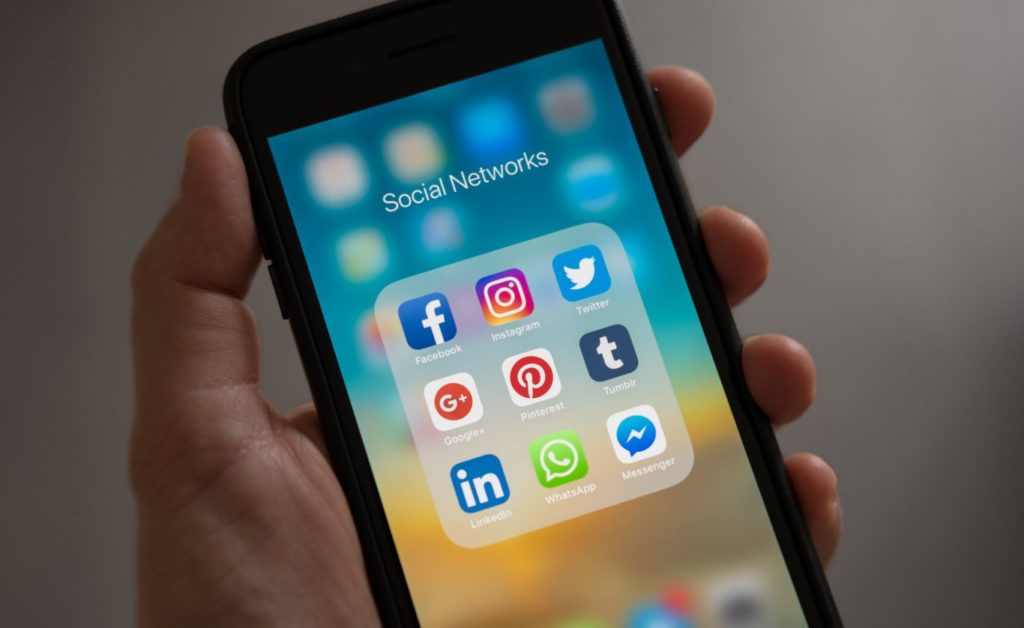So you have FOMO. Don’t worry, you’re not alone! Everyone experiences fear of missing out at some point or another, especially young people who are likely to feel FOMO on a day-to-day basis.
Luckily, FOMO doesn’t have to be the be-all, end-all.
Here’s 8 simple solutions to FOMO.
1. Switch up your feed
A major cause of FOMO is social media. With social media, we’re able to know what everyone’s doing all the time. When we know what other people are doing, we’re more likely to worry that we’re missing out.
Work to minimize your engagement with FOMO-inducing accounts, so that more of your feed makes you happy.
If you don’t want to quit social media altogether, try changing up your feed. Mute content and accounts that you notice triggering your FOMO. Work to minimize your engagement with FOMO-inducing accounts, so that more of your feed makes you happy.
2. Avoid overusing social media
After you’ve muted and unfollowed the content and accounts that you give you FOMO, work on cutting back your social media use across the board. Learn to redo your bedtime routine without your eyes glued to Twitter.
One cognitive-behavioral therapy technique suggests setting aside a certain time every day to check all your social media outlets. Make this your one and only time of day to check your accounts, and stick to it.
Eventually, your habit will be to just check social media at that one time a day, rather than whenever you have a second.
3. Make plans
Sometimes FOMO results from having another obligation that forces you to miss out, but there’s other times that FOMO comes from feeling lonely or excluded.
Whether it’s with one good friend or a group of them, doing anything social that gets you with friends is sure to help you to shake that feeling that you are missing out.
So, if you’re experiencing FOMO and it’s not because you’re busy doing something already, find a friend who’s free too! Whether it’s with one good friend or a group of them, doing anything social that gets you with friends is sure to help you to shake that feeling that you are missing out.
It could even be as simple as a Facetime call or Zoom happy hour!
4. Focus on gratitude
Studies show that engaging in gratitude-enhancing activities like gratitude journaling, meditation or just taking the time to send a loved one a note of appreciation can uplift your mood.
Bonus: practicing gratitude can also brighten the days of those around you!
When you take the time to be grateful for the things and people in your life, and fully appreciate how much you have, you’re less likely to care about a party you’re missing out on or the vacation you’re jealous of.
Daily gratitude can help to slowly build the mindset that you have what you need in your life and others do too. If you’d like to learn more about what gratitude can do for your mental and emotional health, check out our other blogs on the topic!
5. Remember: it’s okay to stay in
Sometimes, you just need a break! Everyone, even extroverts, need “me time” now and again. The problem is that many of us don’t know how to take “me time” without feeling guilty about it.
It’s true that there’s always a million other things you could be doing, but that doesn’t mean those things are more valuable. It’s okay to give yourself permission to rest and take time to relax without thinking of what else you could or should be doing.
“Me time” is good for you, so don’t fear missing out—savor it!
6. Make a list of priorities
If you don’t have a clear understanding of your priorities, you’re likely to feel a lot of FOMO and indecision about choosing one thing over the other. So, take the time to reflect on your priorities, then make a list of them to go back to every time that FOMO/indecisiveness starts to creep in.
When you have a clear sense of your priorities, choosing how to spend your valuable free time can be less stressful and less likely to create FOMO.
For example, if family time is higher on your list of priorities than socializing with friends, that’s fine! Now you know the next time you have to choose between hanging out with friends and hanging out with family, that hanging out with family is the way to go.
When you have a clear sense of your priorities, choosing how to spend your valuable free time can be less stressful and less likely to create FOMO.
7. Self-reflection and self-improvement
If your FOMO is creating anxieties that you’re not doing enough or what you’re doing doesn’t matter, making a list can be helpful here as well.
Take a minute to write down the things you do that you think help make the world a better place. It can be anything big or small! When you consider your life through this lens, you’ll start to feel your activities are more valuable.
Then, build on that! Transform your alone time into self-improvement time. Read a book, watch a documentary—do something that will inspire you and that you can learn from. Take what you’ve learned and add it to your list as “to-do” ideas for other ways you can make the world a better place.
8. Dig a little deeper
Sometimes FOMO is more than just FOMO.
Are you simply annoyed that you said “no” to a party invite, but everyone said it was a lot of fun? Hey, it happens! No need to do any deep self-reflection here.
But, if you find that your FOMO is bringing up all sorts of questions—perhaps you’re even starting to wonder if you’re happy in general—then you might need to take the necessary time and figure out what is really going on.
When FOMO routinely dredges up feelings of general unhappiness and insecurities, it could be a sign you’re struggling with depression or anxiety. Talk to your doctor if you think this might be you.
Time to get started!
We hope that you find this toolkit helpful and that, by keeping these tips in mind and putting them into practice, you’re able to kick FOMO to the curb.
If you want even more FOMO content, take a look through our blog page for our other FOMO-related blogs!




